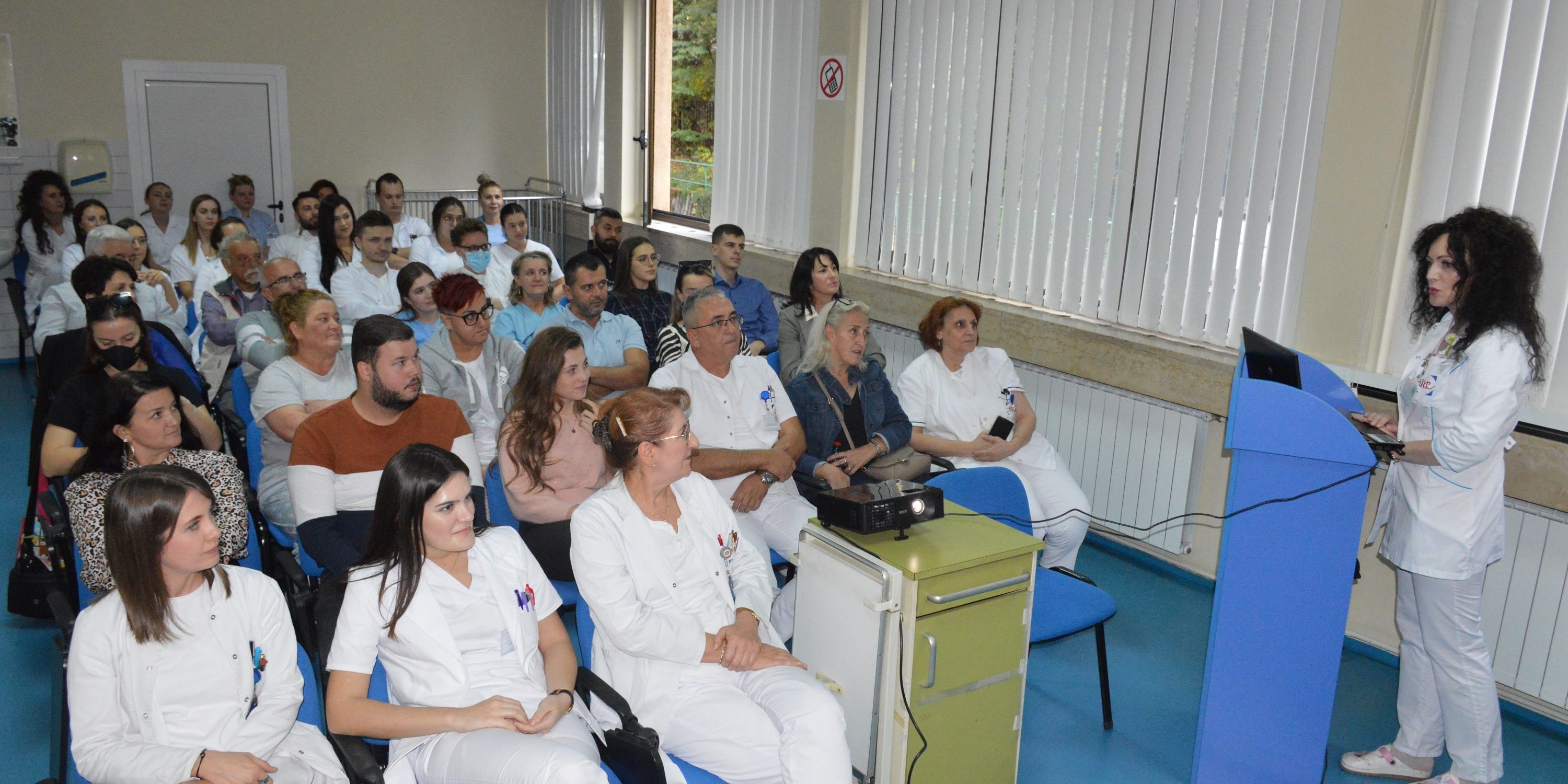On the occasion of World Psoriasis Day 2023, the Clinic for Skin Diseases University Clinic Center Tuzla teamed with Psoriasis Association FBiH and hosted a series of clinical lectures on psoriasis.
The organizer’s goal was to to share knowledge and insights about psoriatic disease and to present therapeutic protocols that can influence the improvement of the quality of life of patients.
Psoriasis is a chronic autoimmune with a strong genetic predisposition disease characterized by frequent episodes of relapse, that is, exacrebation and remission, and it is manifested by a diverse clinical picture.
During her speech, head of the Clinic for Skin Diseases, Dr. Senada Resić Džananović said that psoriasis is a major public health problem. There is a great stigmatization of psoriasis patients, eventhough the disease is not contagious. There is no official register of patients.
“Today’s lectures, as well as meeting with patients aim to raise awareness and call for action in support of people living with psoriatic disease. Also, the aim is to point out the existing psoriasis clinical guide, primarily treatment with biological therapy. Currently, we have eight patients who are in the process of being treated with this therapy and who are without any visible changes on the skin with a significant improvement in the quality of life”, pointed out Dr. Resić.
She also said that this disease requires a multidisciplinary team approach, because patients with a more severe form of psoriasis may also have insulin resistance, diabetes and metabolic syndrome, which occasionally requires periodic check-ups by an internist-cardiologist.
Risk factors for the onset of psoriasis in addition to genetic origin can also include climatic conditions, diet, medications such as antimalarials, beta blockers, ACE inhibitors, antibiotics, antirheumatic drugs and systemic corticosteroids, as well as stress, hormonal and metabolic disorders that can trigger a psoriatic reaction and enable the shift from latent psoriasis to clinical psoriasis.
Psoriasis can also be aggravated by skin injuries such as cuts, burn, rashes and insect bites, and can occur in people who are immunocompromised or have other autoimmune disorders.
The diagnosis is established on the basis of the clinical picture and pathohistological findings.







